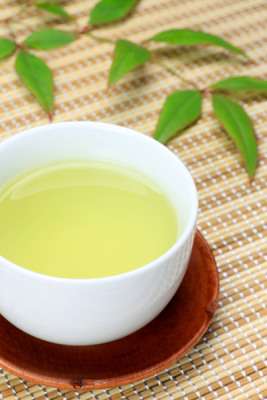- MENU
- HOME
- SEARCH
- WORLD
- MAIN
- AFRICA
- ASIA
- BALKANS
- EUROPE
- LATIN AMERICA
- MIDDLE EAST
- United Kingdom
- United States
- Argentina
- Australia
- Austria
- Benelux
- Brazil
- Canada
- China
- France
- Germany
- Greece
- Hungary
- India
- Indonesia
- Ireland
- Israel
- Italy
- Japan
- Korea
- Mexico
- New Zealand
- Pakistan
- Philippines
- Poland
- Russia
- South Africa
- Spain
- Taiwan
- Turkey
- USA
- BUSINESS
- WEALTH
- STOCKS
- TECH
- HEALTH
- LIFESTYLE
- ENTERTAINMENT
- SPORTS
- RSS
- iHaveNet.com: Health
Katrina Bertol

Tea can be warming, invigorating, soothing, and most importantly, health promoting. With thousands of varieties, tea is a versatile drink and great alternative to coffee or calorie-laden lattes. Many types of tea have outstanding health benefits, so while it's easy to be overwhelmed by the vast amount of tea to choose from, a little knowledge can set you on the right path.
Caffeine Content: Many black, mate and green teas contain caffeine, which stimulates the central nervous system and acts as a diuretic. Avoid caffeinated teas in the evening (especially if you have problems falling asleep) and save them for the morning or afternoon. Remember that if you are having caffeinated tea, drink an equal amount of water to avoid dehydration.
How much tea can I drink? If you're drinking herbal tea that contains little or no caffeine, you can drink an unlimited amount. Try to stick with 3 cups or less of black tea, or 5 cups or less of green tea as a rule of thumb, but everyone has a different tolerance to caffeine, so if you are feeling jittery, having problems sleeping or concentrating, perhaps it's time to experiment with caffeine-free varieties.
How long should I brew my tea? Every variety of tea has a different brewing time, but to get the maximum nutritional benefit from each tea, steep for 3-6 minutes. Ideally, you should first follow the directions on the box, or speak to someone in your local tea shop, as some oolong teas call for a 10-minute brewing time.
TEA VARIETIES AND BENEFITS
The three most popular varieties of tea are green, black, and oolong. These varieties all come from the same plant. The differences between them are a result of the processing that each tea goes through.
Green Tea
Green tea is made from unfermented leaves and reportedly contains the highest concentration of polyphenols (a group of powerful antioxidants). Antioxidants are substances that fight free radicals, which are harmful compounds in the body that can alter cells and cause DNA and cell damage. Green tea has been consumed throughout the ages in India, China, Japan, and Thailand.
In traditional Chinese and Ayurvedic medicine, practitioners used green tea as a stimulant, diuretic, astringent (to control bleeding and help heal wounds), and to boost the immune system. Other medicinal uses of green tea include boosting metabolism, regulating blood sugar, promoting digestion, and improving mental processes.
Black Tea
The polyphenols in black tea are known to stop bacteria from growing in the mouth, keeping things like bad breath and herpes away. Black also tea has anti-inflammatory properties and may help relieve symptoms of arthritis, relieve stress and boost metabolism. It may also lower the risk of heart attacks and strokes while reducing LDL ("bad" cholesterol).
Oolong Tea
Oolong is the fat-busting variety of tea that will help suppress appetite and increase fat oxidation. By drinking a cup of oolong tea daily, along with maintaining a healthy diet and proper exercise program, you should be well on your way to shedding a few pounds and improving your health!
White Tea
White tea is harvested the earliest out of all of the teas. White tea has been found to contain more catechin antioxidants than green tea and therefore may be more effective at preventing cell damage, shrinking cancerous tumors and stopping the growth of cancer cells. Because of its anti-microbial and anti-inflammatory properties, it may help reduce acne and other skin irritations.
Rooibos Tea
Rooibos tea, or red tea, is an herbal medicinal beverage acquired from the Aspalathus-linearis bushy plant that is found in South Africa. Rooibos tea provides iron, calcium, potassium, copper, fluoride, manganese, zinc, and magnesium. It's also a significant source of alpha hydroxy. The alpha hydroxyl acid and zinc contents in red tea can be helpful for skin problems. This tea has many health benefits and may help with headaches, insomnia, colic or stomach pain in infants, diarrhea and constipation.
Herbal Tea
Almost every herb you can think of can be steeped in hot water to make a tea, each with its own unique benefits:
Dandelion tea promotes liver health.
Peppermint tea relieves digestive distress.
Ginger tea improves circulation and helps fight colds.
Black cohosh helps relieve menopausal symptoms.
Mate Tea
This tea is a true powerhouse. It's packed with antioxidants, vitamins, minerals and other beneficial nutrients. The list includes: vitamins A, B1, B2, niacin, B5, C, E; calcium; zinc; manganese; iron; selenium; potassium; magnesium; carotene; fatty acids; chlorophyll; flavonols; polyphenols; inositol and amino acids. Though it contains caffeine, mate tea will stimulate your mind and body without giving you the negative side effects usually associated with caffeinated beverages.
Mate tea may help relieve symptoms of arthritis, slow digestion, liver diseases, headache, rheumatism, weight gain, high cholesterol and many other health issues.
Copyright © NATURALLY SAVVY. All rights reserved.
AGING | ALTERNATIVE | AILMENTS | DRUGS | FITNESS | GENETICS | CHILDREN'S | MEN'S | WOMEN'S
Health - Enjoy the Health Benefits of Tea